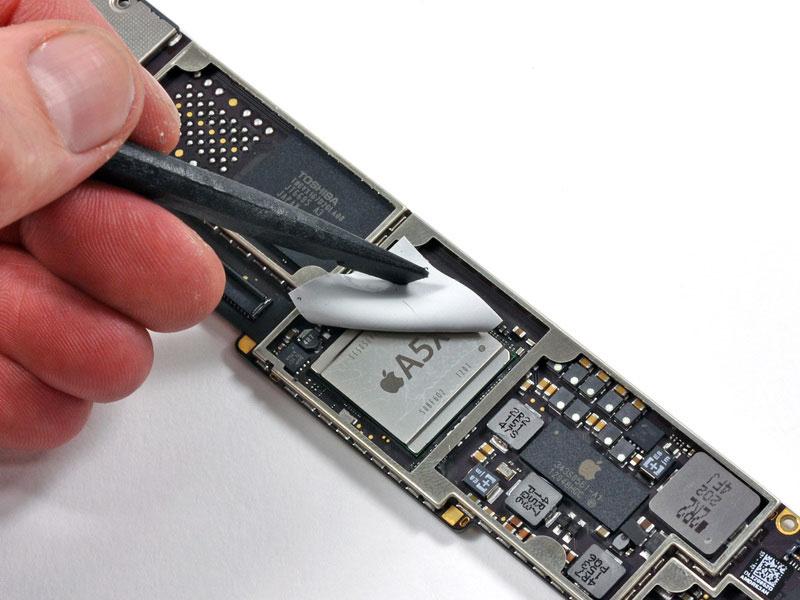Apple bid for exclusive TSMC chip supply access denied, report says
Last updated
According to people familiar with the situation, TSMC denied separate investment bids from Apple and Qualcomm, both of which wanted the chip maker to dedicate a portion of its production line to making chips for them, reports Bloomberg.
Apple currently sources the A-series chips used in its mobile devices from Samsung, making the two companies strange bedfellows as the Korean electronics giant is one of Apple's biggest competitors in the smartphone industry. Samsung also supplies Apple with displays and other components used in iDevices and MacBooks.
Complicating matters is the outcome of the high-stakes Apple v. Samsung patent trial, which found Samsung to have violated six Apple design and utility patents. The Korean company was hit with over $1 billion in damages and is facing a permanent injunction against eight infringing devices, with a hearing regarding the sales ban scheduled for Dec. 6.
The somewhat rocky relationship may have prompted Apple to seek out an alternate chip maker, however it is likely the company merely wants options as its iPhone and iPad business skyrockets. During Apple's conference call for the third fiscal quarter of 2012, it was revealed that iPad sales grew to 17 million units for the three month period, a 28 percent jump year-to-year. iPhone sales were also strong at 26 million units, representing a 28 percent boost from the year-ago quarter.
The Samsung-manufactured A5X processor as seen in Apple's third-generation iPad. | Source: iFixit
In a statement to investors last month, TSMC Chairman Morris Chang said he was willing to devote one or two factories to a single customer, however it appears the company is either not yet ready to take that step or feels Apple and Qualcomm's bids were too low.
As the world's largest custom chip maker, TSMC isn't in need of investments and doesn't want to sell part of itself, said CFO Lora Ho. Dedicating one fabrication facility to a single product or customer would be risky, as the plant could become a burden if the client or technology changes. Currently on the company's client list are industry heavyweights like Qualcomm, Broadcom and Nvidia.
“You have to be careful. Once that product migrates, what are going to do with that dedicated fab?†Ho said. “We would like to keep the flexibility.â€
It was reported in March that TSMC components would see a greater presence in future iDevices, as the Taiwan-based company was tapped to manufacture power management chips for Dialog Semiconductor to be used in future iPhones and iPads. TSMC already supplies Apple with iPhone and iPad ICs through foundry services for Broadcom, CSR, Cirrus Logic and Qualcomm.
Last September, Apple reportedly signed a foundry agreement to use TSMC's 28nm and 20nm processes to build upcoming A-series chips, following rumors that the company had produced a trial batch of the next-generation A6 processor.
 AppleInsider Staff
AppleInsider Staff














 Amber Neely
Amber Neely
 Thomas Sibilly
Thomas Sibilly

 William Gallagher
William Gallagher
 Malcolm Owen
Malcolm Owen
 Christine McKee
Christine McKee










36 Comments
I hope it is because they really want to diversify their client base and NOT because the bid is too low. Apple could buy the equipments etc. and lease it back to them if they too scared of the commitments.
And so Apple is stuck with Samsung.
rofl.
'Declined' might have been a better choice of words. Would $1B have funded a line? Seems not. Is the argument in favour of Taiwan against a plant in the US one of access to suitably qualified labour or other factors?
How much would it cost Apple to make their OWN semiconductor fab?
How much would it cost Apple to make their OWN semiconductor fab?
Samsung have just invested >4 billion to expand/renovate their Austin, Texas plant.
A new plant would be small change for apple, but probably not a wise investment. As margins are low.